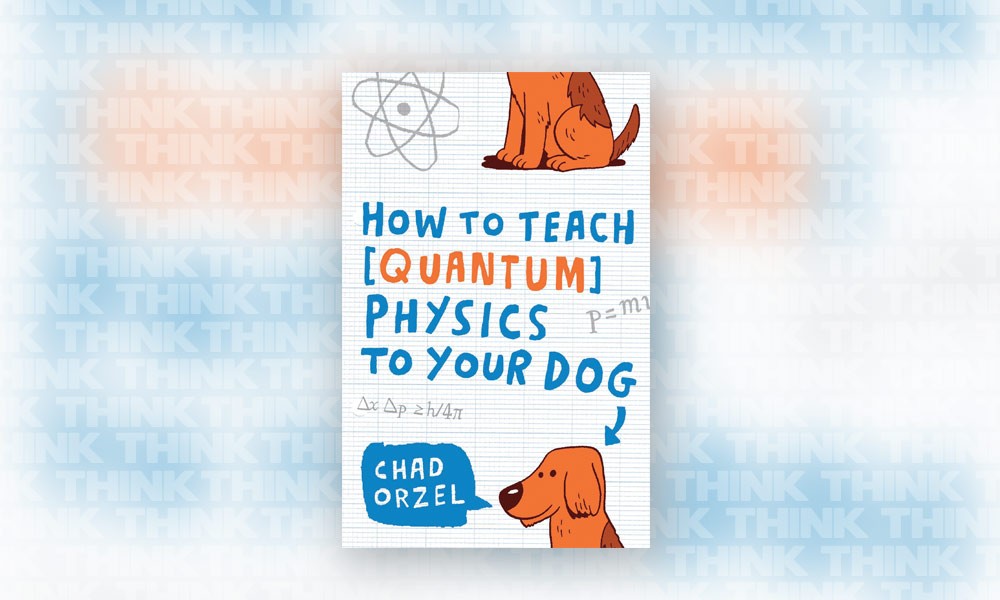For such a tiny nation, isolated on the periphery of many gargantuan nations and empires, the Maltese share an eventful and varied history. Dr Charles Xuereb, in his new book Decolonising the Maltese Mind: In Search of Identity, gives a fascinating account of the Maltese existence and how different peoples passing through the island nation have affected its culture across history.
Continue readingA Pocket Guide for Medical Students – Book Review
Are you a medical student feeling lost or maybe thinking of embarking on the journey to become a doctor? Struggling to juggle your studies while living a life outside medicine? Remain calm! THINK Magazine sat down with Dr Sarah Cuschieri to discuss her latest book A Pocket Guide for Medical Students, full of tips and tricks on how to survive and thrive during medical school and beyond.
Continue readingA Roadmap to Successful Scientific Publishing
Are you thinking about writing a scientific article? Do you have a good research idea but don’t know what to look out for in the process of publishing? Don’t panic! We’ve gotten in touch with Dr Sarah Cuschieri, author of A Roadmap to Successful Scientific Publication to ask those very questions.
Continue readingNewton and the Counterfeiter
Book review by David Reuben Grech
Continue readingHow To Teach Quantum Physics To Your Dog
Book review by Andrea Marie Cini
The term quantum physics has struck fear into many hearts. Such a complex subject has, for many years, dumbfounded students, and, it seems, their dogs alike. Chad Orzel (a professor at Union College,New York) in his book, How To Teach Quantum Physics To Your Dog, tries to accomplish just that; how do you explain sub-atomic physics in a fun and easy way? Using his dog Emmy as a fellow narrator, Orzel explains quantum physics from a different, more canine-oriented perspective, and actually manages to make it work!
Making use of situations that dogs encounter on a nearly daily basis, such as rabbit chasings, evil squirrels and squeaky toys, the author explains some of the most complex theories and experiments in science. Sound bites as particle-wave duality, Heisenberg’s uncertainty principle, and quantum tunnelling are just a few of the many topics covered and are colourfully explained within this book. Making use of simple diagrams and modern references, these previously baffling topics are simplified in a way even a dog could understand (if dogs were capable of learning science—debatable). Orzel’s ideology is pretty simple: if a dog could understand his explanations then a human surely would.
Apart from being a sturdy foundation for the topic of quantum physics, the fun-loving and comical conversations between Orzel and Emmy the dog are a captivating read. Emmy’s curious questions and Orzel’s exceptionally patient answers make it almost impossible for readers to forget. Within this novel it feels as if the reader is really strolling in a park with the duo. Apart from this professor’s incredible explanations and handy diagrams, another distinguishable feature of his book is the fascinating footnotes—a source of unforgettable fun facts. For example, did you know that the great scientist, Schrödinger, was a notorious womaniser?
While I would not recommend How To Teach Quantum Physics To Your Dog to pass the next quantum mechanics exam, it is great foundation material. Studying quantum physics has never been more fun and the book is a great read—highly recommended.
The State of Africa
Book Review by Dr Jurgen Gatt
Continue readingAtomic: The First War Of Physics And The Secret History Of The Atom Bomb: 1939–49
Dr Edward Duca reviews Jim Baggott’s book.
Continue readingTesla: Inventor of the electric age
Nikola Tesla is everywhere. We have Tesla AC power generation and supply, remotely operated vehicles, and he inspired radio and wireless power. In this book historian W. Bernard Carlson meticulously goes through the thought processes of how Tesla came up with these inventions, but also examines his great failures and repeated dips into depression.
The Immortal Life of Henrietta Lacks
Over 60 Best Book of the Year lists, 75 weeks on the New York Best Sellers list, and several prestigious awards, The Immortal life of Henrietta Lacks by Rebecca Skloot is a must read for all. I don’t usually review 4-year old books, but this non-fiction book has it all: race and class issues, betrayal, loss, education and healthcare access, exploitation, and lucidly told science.Continue reading
Dreamland


David K. Randall woke up on his back, his leg bent at an awkward angle, in excruciating pain. To figure out why, he wrote a book about the science of sleep. Clever. Clever doubles as a nice summary of the book.
Another book summary: sleep rules your life. Get a good night’s sleep or else everything suffers: your creativity, memory, attitude, ability to think straight, control your emotions, react to emergencies, sex life, and work. Lack of sleep has cost lives; to sleep is to live.
An extreme statement but Randall holds a very good argument. Zlatko Glusica, an Air India pilot, woke up just before landing and tried to bring a plane down safely with a sluggish brain whose higher brain functions were down. In this state we might talk to lamps, Glusica instead killed himself and 157 others. Lack of sleep and truck drivers are another bad idea, while battles have been lost because of sleep. Sleep prevents disasters.
“Randall covers an immense range of research and topics. This is where the book’s problems start. He did a lot of research and wants us to know that.”
The book is well researched. Randall fires factoid after research study at the reader in a pleasant easy to read style. You’ll learn about the dangers of the first sleeping pill that is now a 30 billion dollar industry, how one in five sleepwalk, and how one in four middle aged men have sleep apnea.
Sleep apnea happens when the airway collapses in either obese people or those with a narrowed throat. A minute can pass before the sufferer briefly wakes up and desperately gulps down some oxygen. Most apnea patients are unaware of their condition. It leads to disrupted sleep and less productivity, memory loss, and heart attacks. Sufferers can use a simple device that gently pushes air into the lungs as an instant cure.
The book is filled with great advice like the above. It’s simple, without hocus pocus, and doesn’t need overly expensive equipment. Relax. Don’t try to sleep too hard. Your brain must disassociate itself from the rest of your body. Don’t drink alcohol or coffee. Expose yourself to light, but not late at night, at night dim lights, avoid screens. Don’t sleep too hot or too cold, the body is meant to cool after 10 pm — let it. Exercise. Simple.
Randall covers an immense range of research and topics. This is where the book’s problems start. He did a lot of research and wants us to know that. At other times, he rambles. A stricter editor would have helped the book.
The author only glosses over hardcore scientific studies. He mentions some science behind daily rhythms in Chapter 9. The book only has 13 chapters. He hardly even mentions the genes or molecular biology related to sleep. The scientist inside me died a little death. There are some amazing stories he missed out on by focusing on the lighter human studies.
Don’t take the above too harshly. Dreamland is a great book to learn more about sleep, just avoid late night tablet reading. You have been warned.











